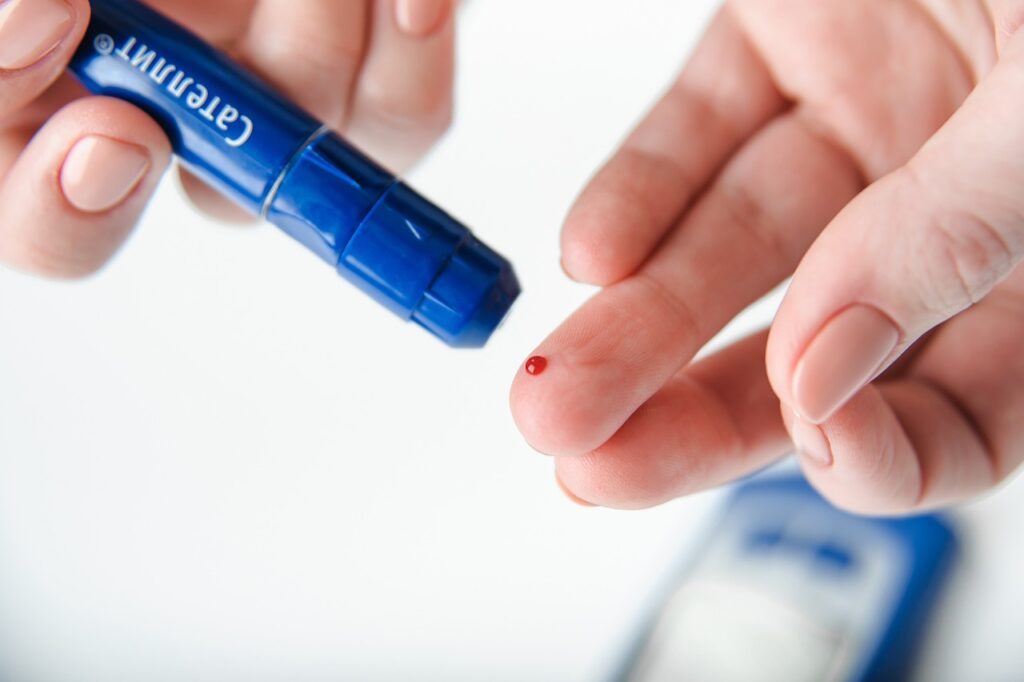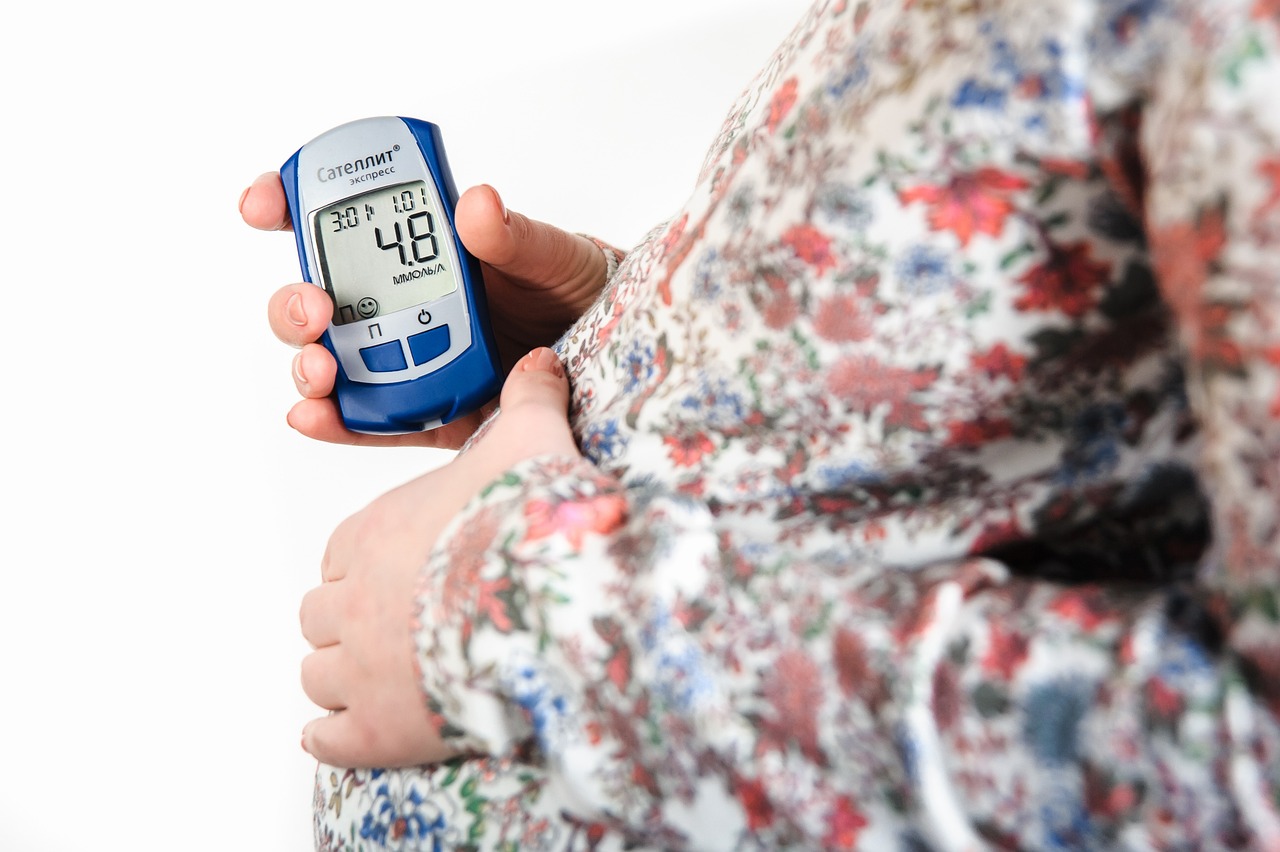Testing positive for gestational diabetes can be a shock during pregnancy. You may not know what this diagnosis means for you and your baby.In this article, we’ll outline i have gestational diabetes now what ? and how you can manage the condition to help you and your baby stay as healthy as possible.
The good news is, gestational diabetes can be managed and controlled with proper care and treatment so you can have a healthy pregnancy.
What is Gestational Diabetes?
Gestational diabetes is a diabetes that occurs in pregnancy, usually after around the second trimester. It happens when your body doesn’t make enough insulin or can’t use insulin properly.
Insulin is a hormone that regulates blood sugar. If your body doesn’t make enough insulin or doesn’t respond to it properly, the sugar in your blood isn’t able to get into the cells and your blood sugar levels get too high, and that can cause pregnancy complications.
Unlike other types of diabetes, typically disappears after delivery. But you should carefully manage it while pregnant to mitigate any risk to your health and your baby’s health.

What Are the Symptoms?
Symptoms of gestational diabetes aren’t always noticeable. The symptoms overlap with normal changes in pregnancy. But what some women experience is:
Increased urination: Common in pregnancy but more symptomatic in gestational diabetes.
Severe thirst: An intense, persistent thirst that remains even after being well hydrated.
Fatigue: Being more tired than normal despite enough rest.
Blurred vision: Your blood sugar levels may have an impact on your eyesight.
Frequent infections: An uptick in urinary tract infections, yeast infections, or skin infections.
If you experience any of these symptoms, be sure to talk with your doctor about it.
How Does One Diagnose Gestational Diabetes?
Gestational diabetes is typically detected through routine screening for pregnancy, which usually occurs between 24 and 28 weeks of pregnancy. Two common tests used to diagnose the condition are:
Glucose Challenge Test: You’ll drink a sweetened beverage, and your blood sugar level will be tested an hour later. If they’re too high, you need a follow-up test.
Glucose Tolerance Test: For this test, you’ll fast overnight and then drink a glucose solution. Your blood sugar will be tested at regular intervals for up to three hours.
If one of the readings is high, you’ll be diagnosed with gestational diabetes.
What Does This Mean for My Pregnancy?
Can feel intimidating, but it doesn’t mean you can’t have a healthy pregnancy. But when uncontrolled,gestational diabetes can cause problems like:
Larger than average birth weight: Babies may be larger than average and can make labor difficult.
Preterm labor: Diabetes can raise your risk of preterm delivery.
Low blood sugar in the baby: Some babies of mothers with gestational diabetes develop low blood sugar (hypoglycemia) after birth.
Increased risk of preeclampsia: Gestational diabetes can lead to high blood pressure and other complications that harm the health of the mother.
By maintaining control over your blood sugar, you can mitigate these risks greatly.
What You Need to Know About Gestational Diabetes
To manage gestational diabetes, follow these steps:
Monitor Your Blood Sugar Levels: Your healthcare provider will help you determine how often you should check your blood sugar. Maintaining your blood sugar levels within the recommended range is important for avoiding complications.
Eat healthy: Healthy eating is one of the main components of managing gestational diabetes. Focus on:
Lean proteins: Poultry (including chicken), fish, tofu and eggs.
Whole grains: Brown rice, whole wheat bread and oats.
Non-starchy vegetables: Leafy greens, peppers, cucumber and tomatoes.
Healthful fats: Avocados, nuts and olive oil.
Reduce sugary items: Reduce sweets, sugary beverages, and processed foods.
Do Regular Exercise: Exercise makes your body use insulin more effectively and regulate blood sugar.
Exercises such as walking, swimming or prenatal yoga may help. Always check in with your doctor before beginning any new exercise program.
Medications: Sometimes lifestyle changes aren’t enough to keep blood sugar levels in check. If that happens, your doctor may prescribe insulin or other medications to help control your levels.
What About After Pregnancy?
Once you have the baby, your blood sugar levels will normalize, but it’s also crucial to take care of your health:
Follow up testing: Your doctor will want to check your blood sugar levels after delivery and may test you again within six weeks to confirm that your levels have returned to normal.
Risk long-term: If you have gestational diabetes, it puts you at risk for type 2 diabetes later in life. Staying within a healthy weight range, remaining physically active and eating a balanced diet are all crucial steps to reduce this risk.
Keep an Eye on Your Baby: Babies born to women with gestational diabetes have a higher risk of developing type 2 diabetes later in life, so promoting healthy habits early on is essential.
Can Gestational Diabetes Be Prevented?
While you can’t always do a lot to prevent diabetes, certain lifestyle modifications can help lower your risk:
Keep a healthy weight: Attain a healthy body mass index (BMI), if possible, before you become pregnant.
Maintain a healthy diet: Eat a whole food, nutritious diet, keep sugar and processed foods to a minimum.
Stay active: Regular exercise before and during pregnancy supports healthy insulin function.
Summary
If you hated the idea of gestational diabetes, the good news is it is very manageable with knowledge and care. You can have a healthy pregnancy and decrease any risks to your baby by adhering to your doctor’s advice, monitoring your blood sugar levels frequently, and letting a healthy lifestyle be your guide.
Keep in mind that gestational diabetes usually disappears after delivery, but it’s crucial to keep monitoring in taking care of yourself and make healthy choices to lower the chances of future issues. Keep following up with your health provider for the best advice.

